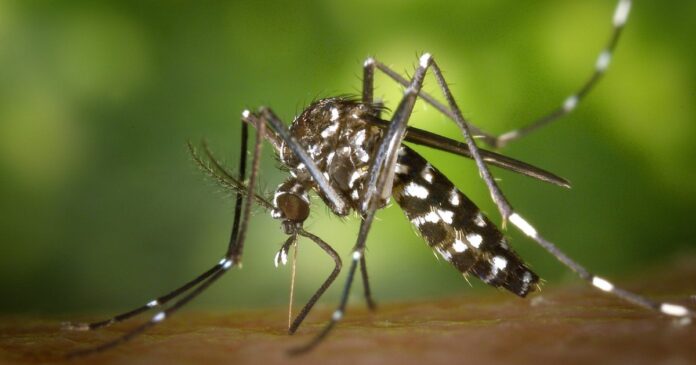CBD has multiple potential application in terms of human and animal health. Another to add to the list is as a pesticide.
Cannabidiol is a non-intoxicating cannabinoid undergoing a lot of research in terms of its usefulness in treating or managing numerous health conditions in humans, and in pets.
But for some other creatures, it seems CBD can be toxic. And while mammals have cannabinoid receptors; insects don’t.
Researchers at Ohio State University investigated whether extracts of hemp leaves were toxic to the larvae of a certain type of mosquito, and if so, to determine the compound/s responsible for this action. That isn’t as simple as it may sound as cannabis contains more than 1,000 different secondary metabolites such as terpenes, phenols and phytocannabinoids.
Some terpenes have been shown to kill mosquitoes, while some phytocannabinoids have been shown to possess insecticidal and/or antifeedant activity. This isn’t a coincidence, but part of a plant’s self-defence system. Hemp has a reputation as a hardy plant, but there are a wide variety of insect pests impacting hemp.
The mosquito species examined was Aedes aegypti, also known as the yellow fever mosquito. Among the diseases it can spread are dengue fever, chikungunya, Zika fever, Mayaro and yellow fever viruses, along with other disease agents. It’s associated with 54 viruses and 2 species of parasites.
“It’s very important to be able to control these pests at an early stage, when they are at the most vulnerable,” said study lead author Erick Martinez Rodriguez.
The researchers found that larvae from both insecticide-resistant and -susceptible strains were killed by hemp leaf extract within two days of exposure – and cannabidiol was the primary active compound.
The researchers stated:
“Our findings regarding the toxicity of CBD to mosquitoes align well with prior research suggesting CBD has toxic, antifeedant, and/or growth-inhibiting properties against other insects.”
They said their study will motivate future researchers to further evaluate hemp extracts and CBD as potential larvicides – and to determine potential non-target and environmental impacts of using hemp extracts for this application.
“In addition, future studies should evaluate the economic feasibility of using hemp leaves as a source of insecticides”.
With a glut of CBD eroding prices for farmers, hemp-based insecticides could be another way growers can generate income from their hemp crops.
The study was published in the journal Insects.


